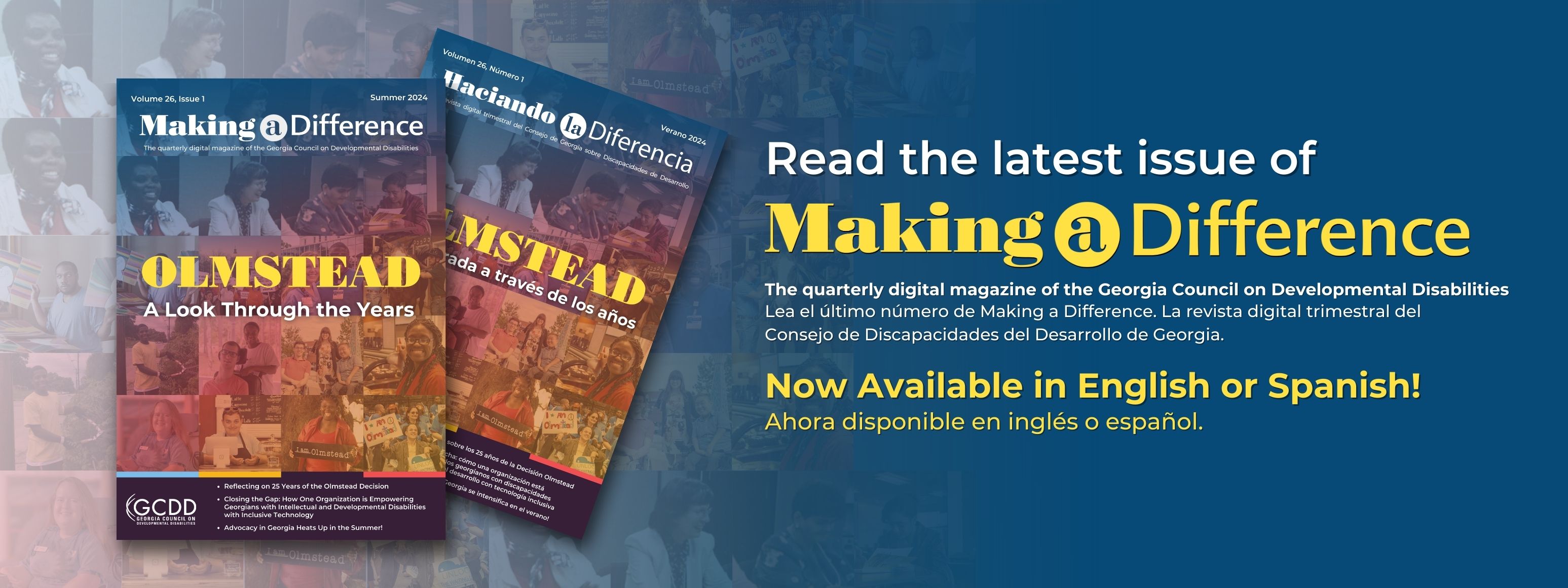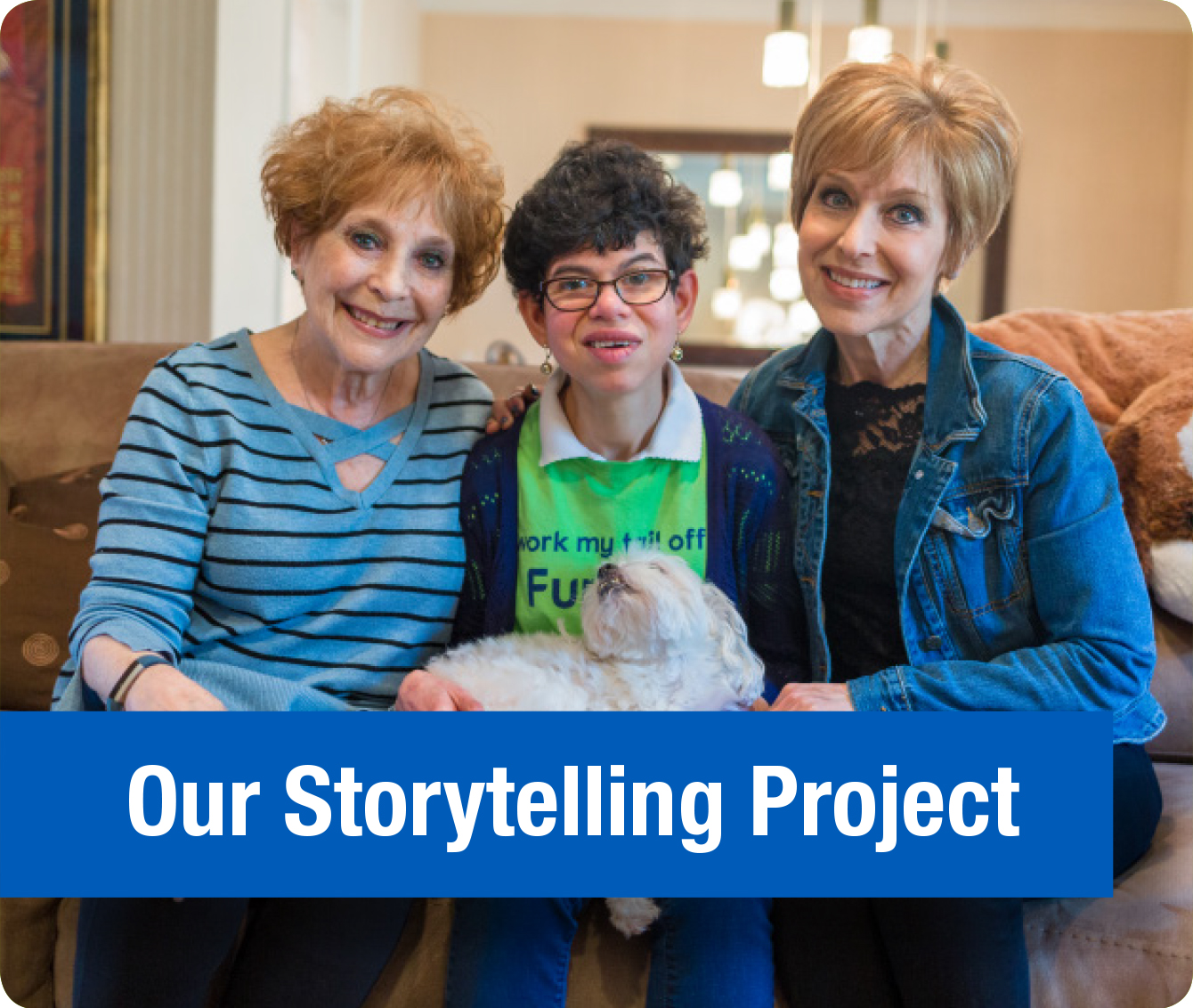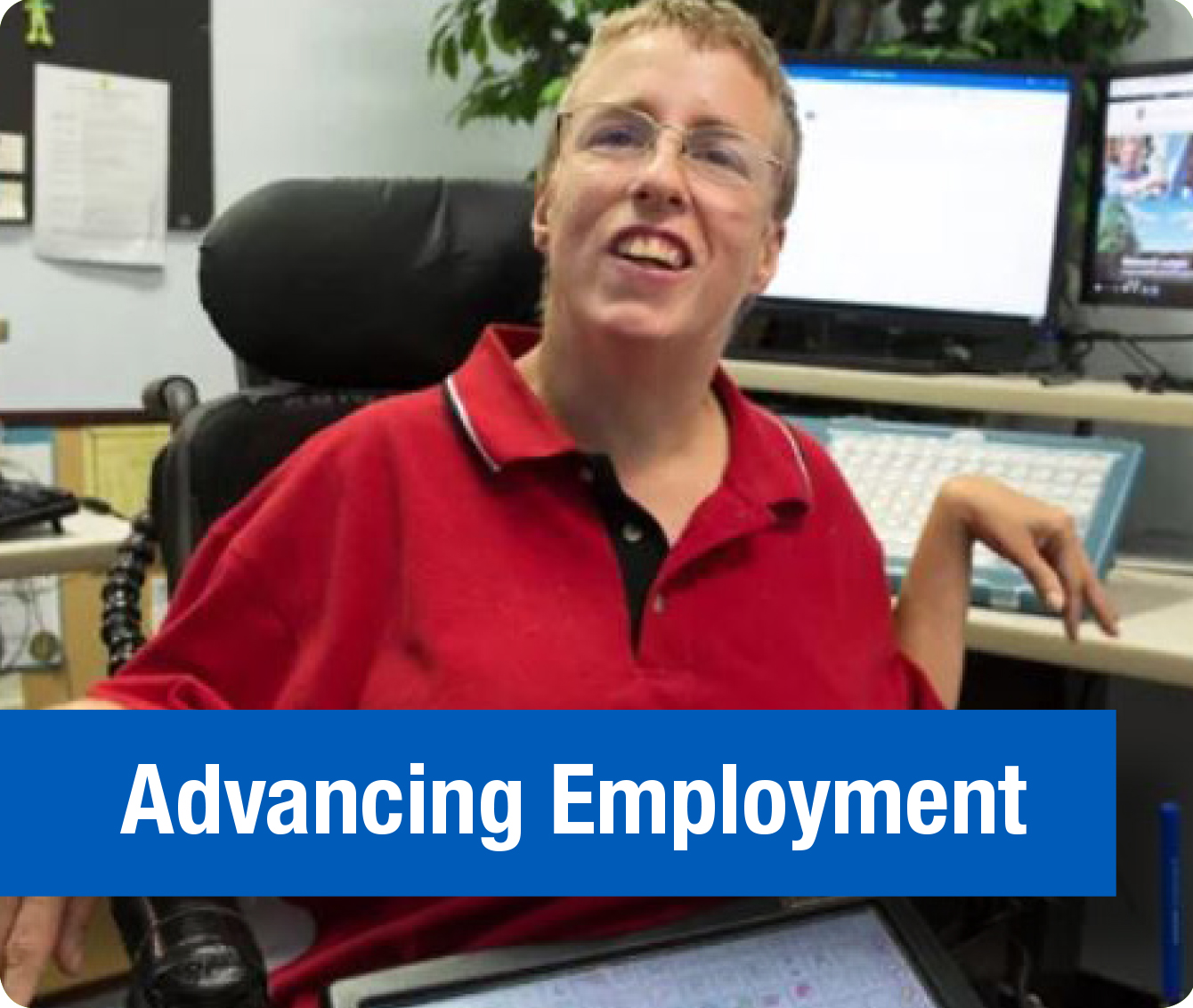Ava’s Law – How Will it Affect Individuals With Autism?
The following is an article on the breakdown of Ava's Law from the Summer 2013 Making a Difference magazine. Click here to read the entire magazine.
Ava's Law – How Will it Affect Individuals With Autism?
By D'Arcy Robb
During the 2013 Georgia General Assembly, a bill known as Ava's Law (HB 309/SB 191/HB 559), was introduced that would require insurance plans to provide coverage for a range of autism therapies. Ava's Law is named after eight-year-old Ava Bullard from Lyons, GA, who has autism and whose mother Anna, started publically leading the effort for change after her insurance company would not cover the costly treatments. The original House Bill 309 is sponsored by Representative Ben Harbin; Senate Bill 191 is sponsored by Senator John Albers and House Bill 559 is sponsored by Representative Chuck Sims.
Ava's Law did not pass out of the House or Senate chamber this session, but it is currently being reviewed by the non-legislative health insurance mandates committee, which will make a recommendation on Ava's Law before the 2014 legislative session starts. In Georgia, many disability advocates are passionate supporters of Ava's Law, but there are also some advocates who object to the bill. Below is a breakdown of Ava's Law and what it is proposing.
What Would Ava's Law Do?
Broadly speaking, Ava's Law would require insurance plans in Georgia to cover a range of behavioral health therapies for autism spectrum disorders for up to $50,000/year to be adjusted each year for inflation.
Ava's Law would not apply to those covered by Medicaid, and not all of Ava's Law will necessarily apply to those who will be covered by "qualified health plans" offered under the health benefits exchange as per the federal Affordable Care Act. The qualified health plans are required to provide essential health benefits, as defined broadly by the federal government and more specifically by each state. The federal essential health benefits include "behavioral health treatment" but do not make any specific mention of Applied Behavioral Analysis (ABA).
What Are Considered Autism Therapies?
Specific bill details of autism therapies include:
- "Treatment for an autism spectrum disorder, prescribed by a licensed physician or licensed psychologist as medically necessary and appropriate for the type of care, shall be a covered benefit under an accident and sickness contract, policy or benefit plan...." (HB 309, lines 70-72)
- "Treatment for an autism spectrum disorder means medically necessary services for the evaluation, assessment, testing, screening, diagnosing and treatment of autism spectrum disorders using evidence-based practices and include behavioral health treatment, pharmacy care, psychiatric care, psychological care and therapeutic care." (HB 309, lines 47-50)
- Therapeutic care is defined as services from a licensed speech therapist, occupational therapist or physical therapist.
- "'Behavioral health treatment' means counseling services and treatment programs that develop, maintain or restore to the maximum extent possible, the
functioning of an individual, including Applied Behavior Analysis and other structured behavioral or developmental programs, that use evidence-based practices, provided by or under the direction of a licensed psychiatrist, licensed psychologist, board certified behavior analyst or other qualified professional." (HB 309, lines 29-34) - "'Applied Behavior Analysis' means the design, implementation and evaluation of environmental modifications using behavioral stimuli and consequences to produce socially significant improvement
in human behavior, including the use of direct observation, measurement and functional analysis of the relationship between environment and behavior." (HB 309, lines 20-24)
Disagreement Among Georgia Advocates
There are many disability advocates in Georgia who are supporters of Ava's Law and the therapies it would cover, but there are others who object to the bill, particularly its inclusion of ABA therapy. The following reflects the Georgia Council on Developmental Disabilities' (GCDD) understanding of the advocates' arguments for and against the current version of Ava's Law:
Advocates are generally in agreement that individuals with autism need access to and can benefit from therapy. The disagreement is over whether behavioral therapies, particularly ABA, are helpful or harmful to people with autism – and therefore, whether they should be covered by a measure like Ava's Law or not.
Advocates Supporting Ava's Law Argue:
- Georgia currently does not require insurance companies to cover therapies for autism, which can be very expensive. Many families struggle to cover these costs or cannot afford them, which also creates a gap between those who can and cannot afford therapies.
- Therapies can be highly beneficial, especially if received at a young age. (Some advocates would say therapies ARE highly beneficial)
Advocates Against Ava's Law Argue:
- ABA therapies, which are included under the current Ava's Law, can be harmful. (Some advocates would say ABA IS harmful).
- Behavioral programs that focus on teaching normative behaviors are asking someone to change their identity, which is wrong – therapy should be about learning useful skills.
A Brief Look at ABA & Behavioral Therapy
In 2011, the Vanderbilt Evidence-Based Practice Center did a review of 159 studies on treatments for children with autism spectrum disorder. The review was done on behalf of the Agency for Healthcare Research and Quality, which is a division of the federal Department of Health & Human Services. Excerpts from their findings include:
- Behavioral interventions – 78 unique behavioral studies were identified. Early intensive behavioral and developmental intervention may improve core areas of deficit for individuals with autism spectrum disorders; however, few randomized controlled trials (RCTs) of sufficient quality have been conducted, no studies directly compare effects of different treatment approaches and little evidence of practical effectiveness or feasibility exists.
- Within this category, studies of UCLA/Lovaas-based* interventions report greater improvements in cognitive performance, language skills and adaptive behavior skills than broadly defined eclectic treatments available in the community. However, strength of evidence is currently low. Further, not all children receiving intensive intervention demonstrate rapid gains, and many children continue to display substantial impairment. Although positive results are reported for the effects of intensive interventions that use a developmental framework such as the Early Start Denver Model (ESDM), evidence for this type of intervention isn currently insufficient because few studies have been published to date. (p. ES-7; our emphasis added)
What is GCDD's Stance?
Ava's Law, in various forms, is an issue that has been under discussion in Georgia for several years now. GCDD has worked to bring advocates who support and oppose the provisions together to work on a common vision that the full disability advocacy community can support. But our efforts at finding a common ground have not been successful.
GCDD has not taken a formal position on Ava's Law. In accordance with our beliefs on the importance of providing information to all advocates and the expressed wishes of our members, GCDD will continue to provide information and updates on Ava's Law. In that spirit, we invite you to consider the two different advocate perspectives on the next two pages.
References:
* ULCA/Lovaas is a type of ABA therapy. ESDM blends ABA with a relationship-focused developmental model.
Warren, Z., et al. (April 2011). "Therapies for Children With Autism Spectrum Disorders." Comparative Effectiveness Review No. 26. (Prepared by the Vanderbilt Evidence-based Practice Center under Contract No. 290-2007-10065-I.) AHRQ Publication No. 11-ECH029-EF. Rockville, MD: Agency for Healthcare Research and Quality. Available at: www.effectivehealthcare.ahrq.gov/reports/final.cfm
For more information visit:
www.effectivehealthcare.ahrq.gov/ehc/products/106/656/CER26_Autism_Report_04-14-2011.pdf









